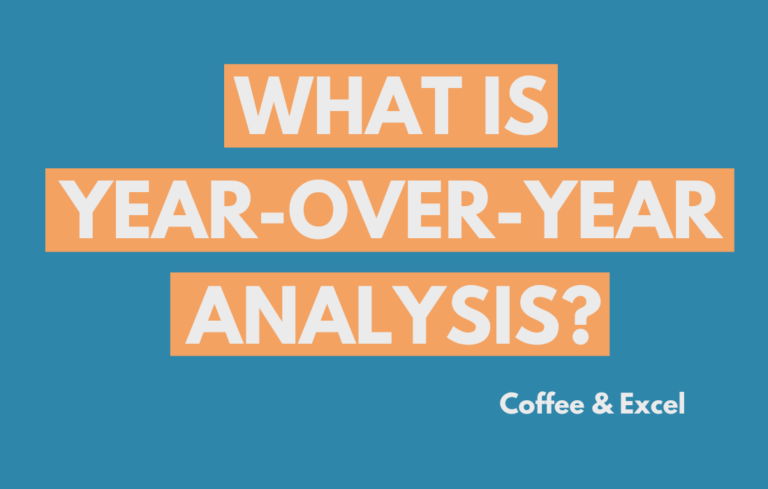Understanding Your Credit Score: Be In Control Of Your Financial Future

Understanding Your Credit Score: A Simple Guide
Understanding your credit score is more crucial than ever in today’s financial landscape. A credit score isn’t just a number; it reflects your financial health and is a key indicator that lenders use to gauge your creditworthiness. As you embark on this journey to grasp the basics of credit score interpretation, it’s essential to recognize its significance in shaping your financial future.
Summary
- A credit score is a numerical representation of your creditworthiness, influenced by various financial behaviors.
- Key components of a credit score include payment history, credit utilization, length of credit history, types of credit, and recent inquiries.
- Credit scores fall within specific ranges, from “Poor” to “Excellent,” affecting borrowing capabilities and interest rates.
- Regularly monitoring your credit score and understanding its components can lead to better financial opportunities.
- Certain behaviors, like late payments and high credit utilization, can negatively impact your score.
- Proactive strategies, such as timely payments and reducing debt, can significantly improve your credit score.
Why Your Credit Score Matters
Transitioning from being unaware to being informed about your credit score can open doors to better financial opportunities. Not only does a good score pave the way for favorable loan terms and interest rates, but it also empowers you to make informed decisions. After all, in the world of personal finance, knowledge is power.
What is a Credit Score?
In personal finance, a credit score stands out as a pivotal metric. It’s a numerical representation that encapsulates your creditworthiness, depicting your financial behaviors and decisions. But what exactly goes into this score, and why is understanding your credit score vital?
Understanding Your Credit Score: The Basics
A credit score is derived from your credit history, a record of how you’ve managed and repaid debts over time. In essence, lenders use a snapshot to quickly assess the risk of lending you money or providing credit. Here’s why it’s crucial:
- Trustworthiness: A higher score indicates that you’ve been responsible with your credit, making lenders more inclined to trust you with their money.
- Financial Opportunities: With a good credit score, you’re more likely to secure loans with favorable terms and lower interest rates.
- Quick Assessments: Lenders often use credit scores as a quick tool to determine if you qualify for a loan, rather than delving deep into your entire credit report.
Several factors influence your credit score. While we’ll delve deeper into these components in the subsequent sections, it’s worth noting that elements like payment history, credit utilization, and the length of your credit history play significant roles. By understanding your credit score, you’re better equipped to navigate these factors and make informed financial decisions.
Key Components of a Credit Score
Diving deeper into the intricacies of personal finance, it becomes evident that a credit score isn’t just a random number. It’s a meticulously calculated figure, shaped by various components that reflect your financial habits. By understanding your credit score, you can pinpoint areas of improvement and leverage strengths in your financial profile.
Understanding Your Credit Score: The Core Elements
To truly grasp the essence of your credit score, it’s essential to familiarize yourself with its foundational components. These elements collectively influence the final score, guiding lenders in their decision-making processes:
- Payment History (35%): The most significant factor is that it evaluates if you’ve paid past credit accounts on time. Late or missed payments can notably decrease your score.
- Credit Utilization (30%): This represents the ratio of your current credit card balances to your credit limits. Keeping this ratio below 30% is recommended for a healthy score.
- Length of Credit History (15%): It considers the age of your oldest credit account, your newest account, and an average of all accounts. A longer credit history can be beneficial for your score.
- Types of Credit Used (10%): This evaluates the mix of credit cards, retail accounts, installment loans, and mortgage loans you have. A diverse blend can positively impact your score.
- Recent Credit Inquiries (10%): It focuses on the number of recent requests for your credit report. Multiple hard inquiries in a short span can lower your score.
As you journey through the world of personal finance, understanding your credit score and its components becomes a beacon, illuminating paths to better financial opportunities and decisions.
Credit Score Ranges
As we delve further into credit scores, we must recognize that not all scores are created equal. Just as a thermometer measures temperature in degrees, credit scores fall within specific ranges, each indicative of your financial health. Understanding your credit score range can be the key to unlocking better financial opportunities and making informed decisions.
Understanding Your Credit Score: Decoding the Ranges
Credit scores are typically measured on a scale from 300 to 850. Each range provides lenders with a snapshot of your creditworthiness, guiding their decisions on loan approvals, interest rates, and credit limits. Here’s a breakdown of the common ranges:
- Poor (300-579): This range indicates a history of significant credit issues. Individuals in this bracket may face challenges securing loans or be subjected to higher interest rates.
- Fair (580-669): Reflecting below-average creditworthiness, individuals in this range might qualify for loans but only sometimes at the most favorable terms.
- Good (670-739): Representing a reliable borrower, this range opens doors to better loan terms and interest rates.
- Very Good (740-799): Individuals in this bracket have demonstrated consistent financial responsibility. They’re often eligible for competitive interest rates and loan terms.
- Excellent (800-850): This is the pinnacle of creditworthiness. Borrowers in this range enjoy the best loan terms and lowest interest rates.
Understanding your credit score and where it stands within these ranges allows you to set realistic financial goals and work towards elevating your score. Remember, a higher score boosts your borrowing capabilities and empowers you with better negotiation power with lenders.
How to Check Your Credit Score
Keeping tabs on your financial health has always been more complex in the digital age. With many tools and platforms, you can easily access your credit score. But why is this important? Understanding your credit score is akin to having a financial compass guiding you through decisions and opportunities.
Understanding Your Credit Score: Reliable Methods
While there are numerous ways to check your credit score, choosing reliable and secure platforms is crucial. Here’s a breakdown of some general methods:
- Official Credit Bureaus: Most countries have official credit bureaus that provide annual credit reports for free. These reports often include your credit score. Examples include Equifax, Experian, and TransUnion.
- Bank and Credit Card Providers: Many banks and credit card companies offer free credit score checks for their customers as a part of their online services.
- Third-party Websites: Several online platforms provide free credit score checks. While they can be convenient, always ensure they’re reputable and secure before sharing personal information.
- Paid Services: Some platforms offer premium services for a more detailed analysis or frequent checks. These often come with added features like credit monitoring and alerts.
When understanding your credit score, it’s essential to remember that scores might vary slightly between providers due to different scoring models. However, they should all give you a general idea of where you stand.
Regularly monitoring your credit score is a proactive approach to personal finance. It allows you to spot discrepancies, understand factors affecting your score, and take steps to improve it.
Factors That Can Negatively Impact Your Credit Score
While we’ve explored the intricacies of credit scores and their significance, it’s equally vital to be aware of potential pitfalls. Certain financial behaviors and decisions can adversely affect your score, hindering your borrowing capabilities. By understanding your credit score and the factors that can negatively impact it, you can take proactive measures to safeguard your financial reputation.
Understanding Your Credit Score: Common Detractors
A credit score is sensitive to various factors. Some actions or oversights can lead to a dip in your score, even if unintentional. Here’s a breakdown of common negative influencers:
- Late or Missed Payments: Consistently missing or delaying payments on credit cards, loans, or bills can significantly harm your score. Lenders view timely payments as a sign of reliability.
- High Credit Utilization: Maxing out your credit cards or using a large portion of your available credit can be detrimental. It’s advisable to maintain a credit utilization ratio below 30%.
- Frequent Credit Applications: Applying for multiple credit cards or loans quickly can lead to multiple hard inquiries on your credit report. Each hard inquiry slightly decreases your score.
- Bankruptcies and Foreclosures: Severe financial setbacks like bankruptcies or foreclosures can negatively impact your credit score.
- Having Only One Type of Credit: A diverse credit mix, such as credit cards, retail accounts, and installment loans, can be beneficial. Relying solely on one type can be a limiting factor.
By understanding your credit score and the elements that can tarnish it, you’re better equipped to navigate the financial landscape. Remember, awareness is the first step towards rectification. Regularly monitoring your score and being conscious of these factors can lead you to better financial health.
Tips to Improve Your Credit Score
Navigating the financial landscape can sometimes feel like treading through a maze. However, enhancing your credit score becomes a feasible goal with the right strategies and awareness. understanding your credit score is about knowing where you stand and recognizing the steps you can take to elevate your position.
Understanding Your Credit Score: Proactive Improvement Strategies
A robust credit score can unlock a world of financial opportunities. While it’s essential to be aware of factors that can pull your score down, knowing the actions that can boost it is equally crucial. Here are some tried-and-true strategies:
- Timely Payments: Consistently paying your bills, loans, and credit card balances on time is paramount. Setting up automatic payments or reminders can ensure you get all the due dates.
- Reduce Outstanding Debt: Work towards paying off outstanding balances. This not only reduces your credit utilization but also demonstrates financial responsibility.
- Avoid Unnecessary Credit Inquiries: Limit the number of credit applications you make in a short time frame. Each hard inquiry can slightly dent your score, so apply for credit only when necessary.
- Keep Old Accounts Open: The length of your credit history plays a role in your score. Closing old accounts can shorten this history. Even if you don’t use an old credit card, consider keeping it open unless there’s a compelling reason to close it.
- Diversify Your Credit Mix: Various credit types, such as credit cards, installment loans, and retail accounts, can positively influence your score.
By understanding your credit score and implementing these strategies, you’re taking proactive steps toward a brighter financial future. Remember, consistency is key. Regularly monitor your score, stay informed, and make informed decisions to see a steady climb in your creditworthiness.
In Conclusion
Understanding your credit score stands out as a cornerstone in the vast landscape of personal finance. It’s a reflection of past financial behaviors and a predictor of future opportunities and challenges. By delving deep into the intricacies of credit scores and adopting proactive strategies, you can navigate the financial world with confidence and clarity. Understanding your credit score is the first step towards a brighter financial future. Equip yourself with this knowledge, and you’ll be better positioned to make informed decisions that benefit your financial well-being.
Frequently Asked Questions (FAQs)
- What is a credit score? A credit score is a numerical representation of your creditworthiness derived from your credit history. It provides lenders with a quick snapshot of your financial reliability.
- Why is understanding your credit score important? Understanding Your Credit Score is crucial because it affects your ability to borrow money, the interest rates you’re offered, and even potential employment opportunities. A higher score can lead to better loan terms and lower interest rates.
- How is a credit score calculated? Credit scores are calculated based on several factors, including payment history, credit utilization, length of credit history, types of credit used, and recent credit inquiries.
- What is considered a good credit score? While different models have varying ranges, a score of 670-739 is generally considered “good,” 740-799 is “very good,” and 800-850 is “excellent.”
- How often should I check my credit score? It’s advisable to check your credit score at least once a year. However, checking more frequently is recommended if you’re planning significant financial moves or suspect fraudulent activity.
- Does checking my credit score lower it? No, checking your own credit score is considered a “soft inquiry” and does not affect your score. However, when a lender checks your score for lending purposes, it’s a “hard inquiry” and might slightly reduce your score.
- How can I improve a low credit score? Improving your credit score involves consistent on-time payments, reducing outstanding debt, avoiding unnecessary credit inquiries, keeping old accounts open, and diversifying your credit mix.
- Are free credit score-checking websites safe? While many websites offer free credit score checks, ensure they’re reputable and secure before sharing personal information. Official credit bureaus and bank services are generally trustworthy sources.





